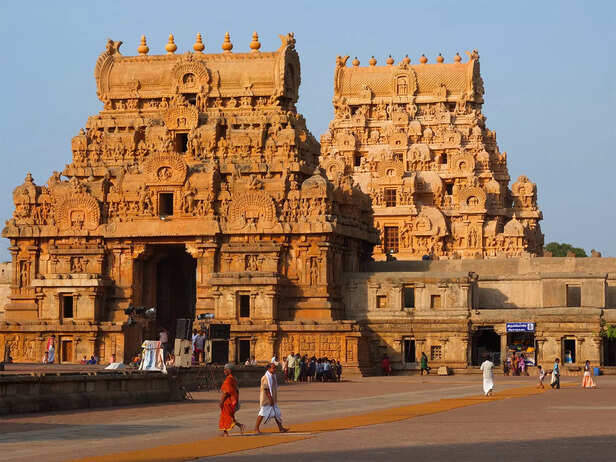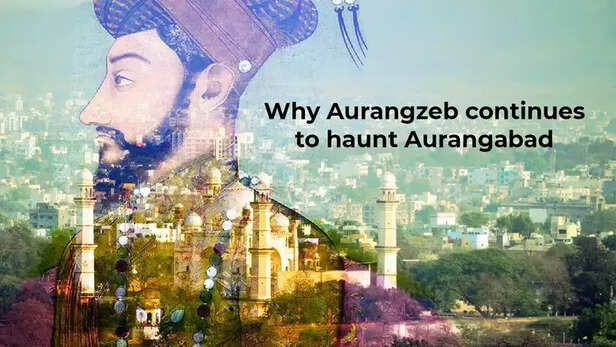The South’s Forgotten Glory: R. Madhavan on NCERT’s One-Chapter Cholas
Nidhi | May 03, 2025, 22:40 IST

( Image credit : Times Life Bureau )
R. Madhavan calls for the restoration of the Chola Empire’s vast legacy in Indian history books. In light of NCERT’s recent curriculum revisions, Madhavan highlights the issue of South India’s historical erasure, where the Cholas are mentioned in just one chapter despite ruling for over 2400 years. The article dives into why this is a bias in history education and calls for a more inclusive approach to India's rich and diverse past.
History, like a river, flows through time—carrying with it the legacies of those who shaped the world. But what happens when parts of that river are dammed up, their waters diverted to other directions? We forget the stories, the people, and the legacies that should have been remembered. This is the heart of the concern raised by actor R Madhavan, whose recent statements about India’s history textbooks have stirred the pot of historical representation.
As NCERT revises its curriculum, Madhavan’s words stand as a bold reminder of what we risk losing when we allow the river of history to flow in one direction, leaving much of India’s rich past in its wake.
 “I might get into trouble for saying this, but I’ll still say it. When I studied history in school, there were eight chapters on the Mughals, two on the Harappa and Mohenjo-daro civilizations, four on British rule and the freedom struggle, and just one chapter on the southern kingdoms — the Cholas, Pandyas, Pallavas, and Cheras,” Madhavan shared, speaking with the conviction of someone who feels deeply connected to the history that is often overlooked.
“I might get into trouble for saying this, but I’ll still say it. When I studied history in school, there were eight chapters on the Mughals, two on the Harappa and Mohenjo-daro civilizations, four on British rule and the freedom struggle, and just one chapter on the southern kingdoms — the Cholas, Pandyas, Pallavas, and Cheras,” Madhavan shared, speaking with the conviction of someone who feels deeply connected to the history that is often overlooked.
He continued, his voice rising in disbelief, “The British and the Mughals ruled us for close to 800 years, but the Chola Empire is 2,400 years old. They were pioneers of sea travel and naval power. They had spice routes that extended to Rome. Where’s that part of our history? Where’s the mention of us building temples all the way to Angkor Wat with our mighty naval forces? Jainism, Buddhism, and Hinduism spread to China. People in Korea speak half Tamil because that’s how far our language reached. And we encapsulated all of this in just one chapter.”
These words are not just a criticism of history books—they are a call to action. Madhavan is not merely lamenting the omissions of the Chola dynasty in textbooks; he’s reminding us that we have been robbed of an essential part of our history.
 In the quest for a streamlined curriculum, important pieces of India’s history are being lost. NCERT’s recent revisions have left large gaps, particularly in the sections on the Mughal Empire, the Delhi Sultanate, and the colonial period. While some argue that simplifying textbooks is necessary, the result has been an alarming erasure of rich, complex histories that form the backbone of India’s cultural heritage.
In the quest for a streamlined curriculum, important pieces of India’s history are being lost. NCERT’s recent revisions have left large gaps, particularly in the sections on the Mughal Empire, the Delhi Sultanate, and the colonial period. While some argue that simplifying textbooks is necessary, the result has been an alarming erasure of rich, complex histories that form the backbone of India’s cultural heritage.


R. Madhavan’s passionate appeal is more than a critique—it’s a reminder that history must reflect the depth and diversity of India. As textbooks evolve, so should our understanding of the past. The Cholas, with their unmatched legacy, deserve more than a chapter—they deserve remembrance, respect, and rightful space in the nation’s memory.
Explore the latest trends and tips in Health & Fitness, Travel, Life Hacks, Fashion & Beauty, and Relationships at Times Life!
As NCERT revises its curriculum, Madhavan’s words stand as a bold reminder of what we risk losing when we allow the river of history to flow in one direction, leaving much of India’s rich past in its wake.
Madhavan’s Bold Statement: A Call to Reclaim the Forgotten Past

R. Madhavan
( Image credit : Times Life Bureau )
He continued, his voice rising in disbelief, “The British and the Mughals ruled us for close to 800 years, but the Chola Empire is 2,400 years old. They were pioneers of sea travel and naval power. They had spice routes that extended to Rome. Where’s that part of our history? Where’s the mention of us building temples all the way to Angkor Wat with our mighty naval forces? Jainism, Buddhism, and Hinduism spread to China. People in Korea speak half Tamil because that’s how far our language reached. And we encapsulated all of this in just one chapter.”
These words are not just a criticism of history books—they are a call to action. Madhavan is not merely lamenting the omissions of the Chola dynasty in textbooks; he’s reminding us that we have been robbed of an essential part of our history.
The NCERT Revision: A History Lost in Translation

NCERT
( Image credit : Times Life Bureau )
- What Was Removed? The Delhi Sultanate and the Mughal Empire—dynasties that shaped much of India’s medieval history—have been reduced, their vast empires and fascinating stories relegated to mere footnotes in a textbook. The sections on the Mughals, once considered the cornerstone of Indian history, are now omitted. The decision to cut the content on the Delhi Sultanate, including the influence of the Mamluks, Khaljis, and Tughlaqs, is another step toward diminishing a rich historical narrative. Social movements and issues like the caste system, too, have seen their space cut in these revisions.
- What Is Being Added? In place of these vast narratives, the new curriculum offers more contemporary content—government schemes like Make in India, Beti Bachao Beti Padhao, and discussions on religious pilgrimages. While these initiatives are undeniably important, they fail to provide students with a deep understanding of India’s historical roots, leaving them with little knowledge of the vast, complex past that shaped their present.
The Chola Empire: An Ocean of Legacy, Dried Up in One Chapter

Chola Empire
( Image credit : Times Life Bureau )
- A Kingdom Beyond Time: The Cholas, one of the longest-lasting dynasties in world history, are deserving of more than just a passing mention. While the British and Mughals may have ruled for a few centuries, the Chola Empire spanned over 2,400 years—an astounding length of time that deserves to be remembered in more than a chapter. The Cholas were the true pioneers of the sea, their naval power unmatched for centuries. The Spice Route, which extended to the Roman Empire, was just one of their many accomplishments, yet it’s almost lost in the vast silence of textbooks.
- The Architects of Culture: Madhavan’s point about the Cholas building temples as far as Angkor Wat speaks to the empire’s cultural and architectural feats. Their temples, masterpieces of Dravidian architecture, are not only places of worship but also symbols of the Chola’s artistic and engineering prowess. These temples, with their towering gopurams (gateway towers), intricate sculptures, and grand design, stood as testimony to an empire that flourished for centuries. Yet, all of this is neatly wrapped up in a single chapter—an empire’s entire legacy reduced to a few pages.
- A Maritime Power Like No Other: The Chola Empire was not only a land-based empire but also a formidable maritime power. At the height of their reign, the Cholas controlled vast stretches of sea, connecting trade routes that spanned from the shores of India to the distant ports of Southeast Asia, including modern-day Indonesia, Malaysia, and even Cambodia. Their naval prowess allowed them to spread not only goods but also ideas—Hinduism, Buddhism, and Jainism sailed across the seas, touching the shores of countries like Thailand and Vietnam. Tamil, their language, reached as far as China, and elements of Tamil culture became embedded in parts of Southeast Asia. Yet, this global influence is often minimized, as though the Cholas only existed within a narrow geographical framework.
The Gap in Our Curriculum: A Story Half-Told

Removal of Mughal Chapters
( Image credit : Times Life Bureau )
- A Lopsided Historical Narrative: Madhavan’s frustration is palpable because it strikes at the heart of a much larger issue: the imbalanced focus in our history books. While the Mughal and British periods are given ample space, the southern dynasties, including the Cholas, are often given short shrift. This imbalance doesn’t just represent an oversight—it skews the narrative of India’s history. By elevating certain narratives and downplaying others, we lose the richness and diversity of the country’s past.
- A Bias That Favors One Narrative: The overemphasis on the Mughal and British periods is not just about history—it’s about the politics of memory. The Cholas, with their incredible legacy, are largely absent from the textbooks. Their maritime legacy, their influence over Southeast Asia, and their cultural impact are lost in a curriculum that focuses on one period, often to the exclusion of others. This selective memory doesn’t just erase the Cholas—it erases the vibrancy of a region that contributed so much to the shaping of India and the world.
- Filling the Gaps: A Call for Inclusivity: History should be a tapestry woven with many threads, each telling its own story. But when we erase one thread, we risk unraveling the entire fabric. To create a more inclusive and complete history for future generations, we must revisit and revise the way we teach the past. The southern kingdoms, especially the Cholas, deserve more than a footnote in the story of India. They deserve a place in the annals of history that reflects their importance—both within the country and beyond.
Rewriting History for Future Generations
Explore the latest trends and tips in Health & Fitness, Travel, Life Hacks, Fashion & Beauty, and Relationships at Times Life!
